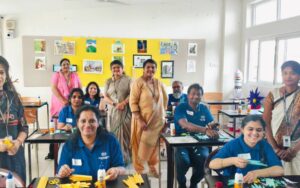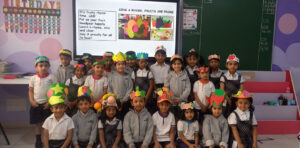Best Study Techniques for Academic Success
Effective study techniques are important for academic success as they aid students in productive learning, retaining information longer, and developing better time management skills. Students can enhance their learning with techniques like active recall, spaced repetition, and organized note-taking, minimize unnecessary stress, and increase their confidence and performance in an academic setting.
This blog discusses a few popular and time-tested study techniques that will help students gain academic success.
Active Learning Techniques
These techniques include active engagement with study materials, namely:
Summarization and Note-Taking
Summarization and note-taking are two of the most important study skills that help students focus on the ideas, organize information, and remember it. Summary provides the essence and includes main ideas, and structured notes allow for better reviewing, which may further increase comprehension and long-term memory.
Teaching Others to Reinforce Understanding
The act of teaching others is a strong tool because it requires students to organize their knowledge, clarify complex concepts, and bridge knowledge gaps. Explaining material builds retention, enhances critical thinking, and goes deeper into the understanding process, thereby laying the foundation for long-term learning.Using Visual Aids Like Mind Maps and Diagrams
Using visual aids, including mind maps and diagrams, can simplify complex information, reveal connections between ideas, and aid memory. It makes the learning process interactive and visibly engaging so that the concepts can be organized properly for easier understanding and recall.
Time Management and Organization
Creating an Effective Study Schedule
An effective study schedule includes setting goals, prioritizing tasks, and allocating specific time for each subject. Ensuring that short breaks are incorporated while balancing difficult and easy topics is necessary. Consistency should be maintained to refrain from distractions. This helps break down the workload, reduce stress, and increase retention.Prioritizing Tasks and Managing Deadlines
Prioritization and managing deadlines are the two essential keys to academic success. Knowing what’s urgent and important will help students identify what has to be done on priority. Breaking down complex duties into simpler steps and setting proper mini-deadlines avoids that last-minute pressure and boosts productivity.The Pomodoro Technique for Focused Study Sessions
The Pomodoro Technique enables students to breakdown study periods into one 25-minute session followed by a 5-minute break. After four sessions, the break is then longer. This technique improves concentration, lessens stress, and increases productivity for effective study.Tips for Staying Organized with Planners and Apps
Staying organized using planners and applications involves keeping a record of daily goals, assignments, and study session schedules. Use colors for your different subjects, reminders for deadlines, and regular review of your tasks. Digital apps are easily accessible to plan, edit, and set schedules.
Breaking Down Study Material
Chunking Information for Better Retention
Chunking information means dividing content into smaller, manageable units, making it easier to understand and remember. It enhances retention because related concepts are grouped for easier understanding of students and improve their ability to grasp the subject matter easily.Using Flashcards and Practice Tests
Flashcards and tests can reinforce memory and check for understanding. Flashcards allow for active recall of key concepts, whereas practice tests provide simulated exam experience, highlighting areas that need improvement. Together, these tools improve retention, confidence, and academic performance.Reviewing and Revisiting Material Regularly
Review and repetition of material on a regular basis helps in etching memory and reinforce learning. Periodic reviews enhance long-term retention while minimizing cramming. Students can refresh knowledge, recognise and work on weak areas, and increase understanding, thus improving academic performance.
Improving Focus and Reducing Distractions
Creating an Optimal Study Environment
An optimal study environment includes a calm place with fewer distractions, availability of study materials, proper ventilation, and a comfortable place to sit. When the study place is organised and structured, it motivates students to focus on studies, promoting productivity.Using Techniques to Minimize Distractions
To pay complete attention during study sessions, distractions like social media, hanging out, calls, etc. have to be kept minimal. This can be done by muting the notifications, following the pomodoro technique, checking the phone only during breaks, and setting clear goals. Taking regular breaks is mentally refreshing and improves concentration.
Enhancing Memory and Retention
Spaced Repetition for Long-Term Memory
Spaced repetition helps in recalling the material again and again over time before the brain forgets it. It is a great way to enhance memory retention and remember for a longer time period.Mnemonics and Association Techniques
Mnemonics and association techniques refer to creating shortcuts or linking topics in a different manner to enhance the memory. They could be acronyms, stories, rhymes, phrases, or visual cues. They simplify complex material and make recalling easier.The Role of Self-Testing in Retention
Self-testing helps you assess your strong and weak areas. It gives an overview of how much you remember and on what topics more emphasis has to be laid. Self-testing can be done through practicing past-year papers or writing mock tests.
Physical and Mental Well-being for Study Success
Importance of Sleep, Nutrition, and Exercise
Adequate sleep, a balanced diet, and regular exercise are essential for optimal brain functioning. They reduce stress, keep the mind calm, improve focus, increase metabolism, and lower burnout tendencies. Therefore, students should be encouraged to maintain a proper lifestyle for improved academic performance.Managing Stress and Building Resilience
To overcome academic exhaustion, students can follow meditation, mindfulness, yoga, play a sport, and engage in extracurricular activities. These activities reduce stress and improve endurance. Additionally, positive affirmations and growth mindsets can keep students motivated.
Check: Top-rated schools in Bangalore
Conclusion
In a nutshell, all the best study techniques provided have a profound effect on your academic performance. It is your duty to pick the ones that work best for you. In addition, be consistent with your practice and have an optimistic mindset. To reap rich dividends, it requires everyday effort and patience. So stick to a plan and get on with it.
Frequently Asked Questions (FAQs)
How can I Stay Motivated to Study Consistently?
Break down big goals into smaller, achievable ones to reduce pressure. Take regular breaks, practice mindfulness, have group studies, reward yourself for progress, and minimise distractions to study consistently with motivation.
What are the Best Techniques for Improving Memory?Chunking down information, using flashcards and visual cues, revisiting the material regularly, practicing spaced repetition, and adopting mnemocis and association techniques are the best ways to improve retention.
How can I Avoid Distractions while Studying?
Sit in a calm place, mute mobile notifications, set achievable goals, use time-management techniques, and take regular breaks to improve focus and productivity.
What Are Some Effective Ways to Manage Study Time?Create a flexible study timetable, prioritise tasks, set small achievable goals, track progress, focus on weak areas, and have focused study sessions to improve focus.
How do I Balance Study Time with other Responsibilities?
Have a proper timetable, prioritise important tasks, avoid procrastination, stay consistent, and take breaks to manage study time and other responsibilities.






